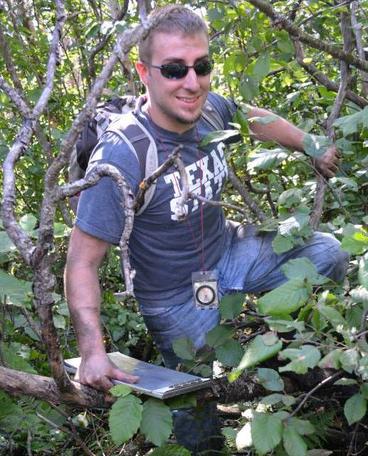Garrett Street is a movement and spatial ecologist specializing in habitat selection and space use across broad geographic extents and levels of biological organization. His research focuses on animal movement and behavioral trends as fine-scale mechanisms producing patterns of animal distribution and abundance at broad spatiotemporal scales. He completed his M.S. in Population & Conservation Biology at Texas State University-San Marcos in 2010, and his Ph.D. in Integrative Biology at The University of Guelph in 2014, before joining the Fieberg-Forester lab complex as a post-doctoral researcher at The University of Minnesota-Twin Cities. He is currently Assistant Professor of Wildlife and Landscape Agroecology at Mississippi State University, where he conducts research on feral swine (Sus scrofa) movement and utilization of agricultural landscapes; white-tailed deer (Odocoileus virginiana) space use in a landscape of fear; double-creasted cormorant (Phalacrocorax auritus) population dynamics in relation to landscape characteristics; moose (Alces alces) habitat selection and population dynamics across bioclimatic gradients; and trends in animal occupancy and abundance with respect to temporal variation in habitat quality and forage abundance in managed forest systems.
His Mississippi State University website is here.
